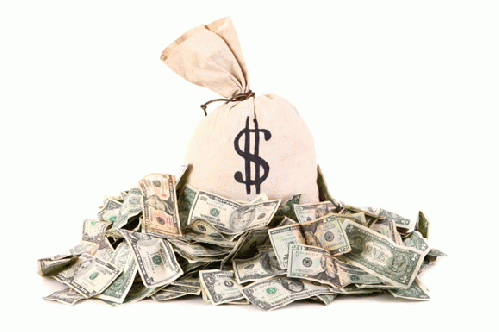="Profit" class="wwscontentsmaller">Profit by webjunk. ru
What is the matter with profit? Profit is the wondrous invention that has brought us all the miracles of our capitalist world, right?
But there is something about profit that we don't like. We consider profit as being not exactly dirty, but impolite, a little shameful. We celebrate profit from a distance, but we don't like it up close and personal. It's kind of like taking a bowel movement. Everybody does it and everybody knows everybody else does it. But we don't like to talk about it; we do it in private, and, no matter how fastidious we are, it leaves a stink.
Capitalism is supposedly all about competition. Profit should be the natural field for competition, the perfect, mathematical, compare-and-contrast between businesses. As in, how much profit we, the company, are going to make on you, the consumer.
But you never, and I mean never, hear it spoken aloud as a selling point. This is very strange.
You could understand it if some company's profit on some product is so disturbingly high that they wouldn't want to brag about it.
"We here at Bangladesh Outsource carefully underpay our tender, nubile pre-teen girls, all hand-selected for their immature, cartilaginous skeletons. When the factory crumbles, our girls bounce. And when our jeans get to America we sell them only at the finest Big Box retailers who hone their payrolls with such exquisite precision that none of their employees ever has to suffer the acute embarrassment of being turned down for food stamps. And the result of our untiring effort for you, the consumer, is a profit of twenty dollars on a pair of jeans that cost us two."
I mean, you can see why they wouldn't want to advertise that. But what if your company isn't number one in the profit parade? Wouldn't you want to advertise that little fact? In the god-like workings of a market economy, wouldn't there be a powerful competitive advantage in saying "We make ten bucks profit when we sell you a pair of jeans; the other guys make twenty?"
Yet you never hear that. Oh, corporations compete loudly on price. They talk price all the time. But they never talk about profit. They treat it like a dirty word. It's as if saying that we take a lower profit is admitting that we make a profit on you.
But that's what business is and always has been. Profit is business, just business.
So why does it feel so personal? Why must we shroud the word, even the concept, in deep denial?
"Here is the gravestone you ordered for your mother, Mrs. Jones. That will be $500 for the granite, $100 for engraving, $75 for shipping and handling, and $250 for my profit. I'm sorry for you loss. Will that be cash or debit?"
If profit was a morally neutral proposition, or the measure of our finest human aspirations, as fans of Ayn Rand insist, why does that invoice sound like an insult?
Profit has an ambiguous place among human behaviors. We have a sex drive, a survival instinct, and a profit motive. Motive, like in murder. I'm not equating profit with crime; I don't have to. The language did it for me.
I'm not making the argument that profit is immoral. I'm just saying we seem to look at it that way. Take a large profit and we call it profiteering. Take a little more and it's obscene. But nobody minds an excess of charity, there isn't even have a word for it.
Profit is inherently exploitive. We rationalize profit (even while we resent it) by telling ourselves we're all in on the deal. You add your bump on top and I do the same and everybody wins.
But it never works out that way because most folks are never in the position to demand, much less make, a profit. Marx had it wrong. The power of capitalism isn't in who controls the means of production. It's in who can demand, and receive, a profit.
(Note: You can view every article as one long page if you sign up as an Advocate Member, or higher).






